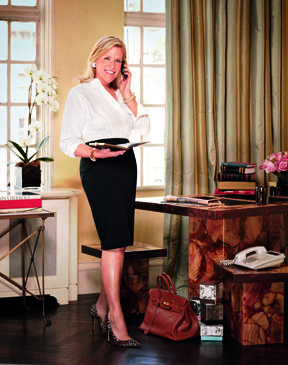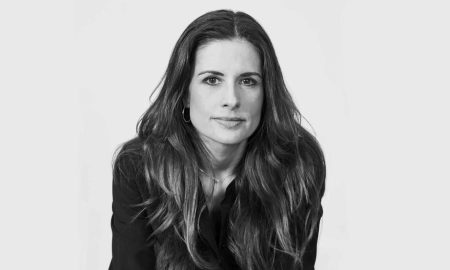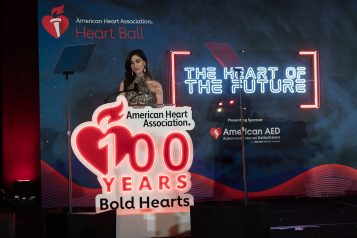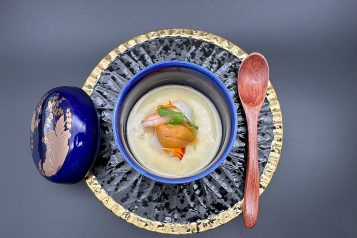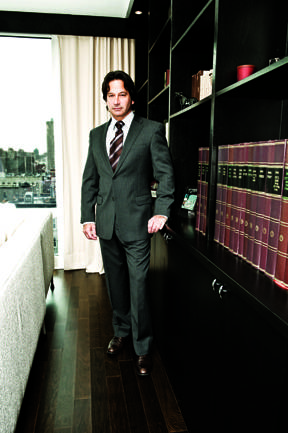
Seth Greenberg sits at his favorite table, center stage, and towering over all others in the space. The long, tall, and sturdy sharing table speaks much to the story of Greenberg’s career: Long. Tall. Sturdy. And created to share.
The legendary hospitality pro has been a renegade. He’s forged new concepts, executed them sharply, and in turn, proven their success, time and time again. Hot on the heels of his newest venture, steakhouse-cum-farmhouse, 1500 Degrees, we caught up with the lifestyle giant to learn just how he does it. And how he plans to keep us entertained—and well fed—going forward.
Like with all great stories, his was born in that spark where eager youth meets forward-thinking genius. At a ripe 17 years, Greenberg was attending college at Boston University and working as an event promoter. Having been born in New York City and grown up in Miami Beach, the knack for bringing together the right group of people was a skill he’d honed in on, and perfected, by this point. For the son of an international businessman with factory outposts in Hong Kong, Thailand, Singapore, and Italy, being constantly in the company of people of different cultural backgrounds the world over, was nothing short of commonplace. And armed with the arsenal of tools that comes from such experience, Greenberg met the world.
At 23 he had his first nightclub, aptly named Paradise. But quite quickly, Greenberg birthed the Euro Club concept; a term derived from Euro House, a genre of music, and one that he felt fit not only the concept, but the clientele—a motley assortment of friends and friends-of-friends from all corners of the globe. So, M-80, the “Euro Club” was built within the Paradise space, and nightlife was forever changed. “It became a place where all of my artist, entrepreneur and sophisticated friends around Boston worked and played,” sums up Greenberg. “There were beautiful models and cool people. Everyone that worked there was friends with everyone who came there; it was home base for the international jet-set that lived in Boston, but they weren’t treated as foreigners, they became part of what we referred to as the Euro community.” This “community” he goes on to explain, was a cross-section of cultures: “Middle Easterners and Arabs partied with wealthy Jewish kids from New York who also mingled with Latinos. It was a melting pot for the wealthiest kids in the world whose parents sent them to college in Boston.
M¬-80 eventually took over Paradise. The demand to be involved was such that Greenberg created a membership program. Become a member, and you’ll always have a table. But the marketing strategies didn’t stop there. Greenberg threw members’ parties once a month, and similar dinners weekly. “Part of my marketing program was to host a dinner once a week and invite local celebrities, new acquaintances…I told my Board of Directors that I’m not going to advertise; instead I’m going to spend the money on new interactive marketing platforms, and that’s how we developed our client base of movers and shakers and personalities that became the fabric of the city.”
Eventually, these members would graduate or move away, but they never forgot the times they spent with Seth. Greenberg recalls watching his M-80 office evolve into a concierge service. “My office became a concierge resource for everyone. When younger siblings or cousins of friends came to Boston they were told to call Seth Greenberg. If they needed a doctor wanted or needed to buy a car, or concert tickets, or dinner reservations, whatever it was, M-80 concierge services would do everything for everyone.” By age 30, and after over a decade of “doing everything,” Greenberg owned ten clubs in Boston. Genius struck again—it was time to dabble in dining.
It wasn’t until he opened his first restaurant, Mistral, that Greenberg really realized just how far reaching he was as a brand. Aside from a few charity events held yearly at his clubs, the clientele had been mostly younger; but the more mature set was vying for a similar experience to call their own. A place where they could find themselves in the good company of the afore-mentioned Euro community, and enjoy evenings of their own kind of fun. A strong dining concept house in the confines of a beautiful, historic building provided them with just that. Today Mistral is running on some 14 years of success; and while it was the first of Greenberg’s golden dining establishments, it certainly wasn’t the last.








